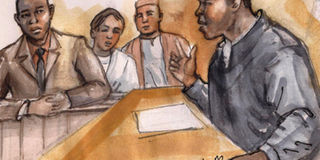Negligence earns doctor 2 years in jail

In 2013 a consultant surgeon, in a private hospital, was sentenced to two-and-a-half years in jail for “killing his patient”.
He had been found guilty of the manslaughter of his patient because of gross negligence while the patient was in his care. Court heard that the doctor first saw the patient after 9pm on the evening of February 11, 2010 and the patient was operated on the following day just after 10pm.
According to the evidence adduced before court there were numerous occasions when the doctor’s care fell far below that which could reasonably be expected of a consultant colorectal surgeon.
Antibiotics
One ground upon which the doctor was found guilty was whether he instructed the junior doctor to prescribe antibiotics for the patient. The two doctors gave conflicting evidence before court.
The surgeon did not mention the issue of antibiotics in his witness statement when this death was first investigated by the coroner shortly after it had occurred.
And during an internal investigation into the patient’s death, the surgeon stated that he had instructed the junior doctor to start antibiotics for the patient and when he spoke to the junior doctor that night he further told the junior doctor to continue with the antibiotics.
Court found that there was no record of antibiotics in the patient’s records and the doctor’s testimony to court varied from his earlier testimonies. An expert told court that prescription of antibiotics is an obvious step in the management of such a case.
Court noted that failure to record the antibiotic prescription was a serious omission as it meant that the nursing staff was not alerted to the need for the patient to have this important part of his treatment.
X-Ray and CT scan
The day the surgeon first saw the patient on February 11, he did identify the possibility of free gas in his abdomen. The finding of the free gas would have confirmed the diagnosis of perforation of the gut.
Court noted that although the doctor was not a radiologist to make a diagnosis of free gas in the abdomen, he did not call and consult the radiologist who was on duty that day.
To court the radiologist would certainly have given a definite answer. The surgeon also wanted a CT scan of the patient’s abdomen which he directed to be done the following day, causing a delay of about 12 hours. Court faulted the doctor for not making use of the facility which was available in the hospital that night.
An independent expert told court that the patient’s condition was really an emergency and this therefore meant that the doctor acted negligently by delaying this vital investigation.
Patient’s review
The surgeon told court that he reviewed the patient the following morning. However, court found that the doctor made no record of this visit in his clinical notes and unfortunately the doctor told court that he was in a rush to attend to another patient who was to undergo a pre-booked procedure.
Court noted that the doctor did not speak to any of the nurses or the junior doctor or anyone who had been caring for the patient during the night.
To court this certainly was not the careful assessment of the patient which was required of the doctor.
Conclusion
Court concluded that even if the doctor had acted more speedily, there was a chance that the patient would have died anyway but that chance would have been very, very much smaller if the doctor had acted as a reasonable surgeon would have acted the night he saw the patient.
To court, the risks increased with increasing delay of the operation.
Court observed that the patient died not because of a single isolated act of negligence; there were several and there were several missed opportunists to notice that the patient’s condition was deteriorating.
The final words of the judge to the doctor were these: “You were the patient’s consultant surgeon. It was you who was responsible for determining his treatment. It is your several failures in that regard which amounted to gross negligence. I am afraid that means your culpability is high.”




